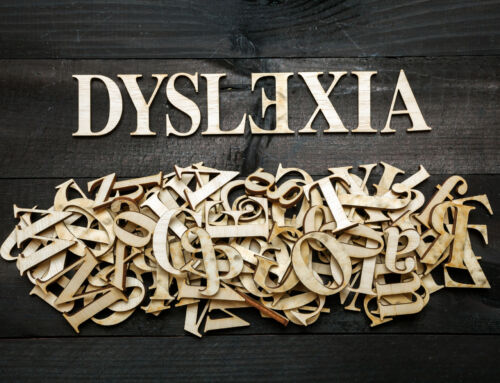Why Does My Child Struggle With Math So Much?
Did you know that up to 15% of students suffer from dyscalculia and never have it diagnosed? Many students would agree that math is their least favorite subject, but what keeps kids from enjoying math?
Think back to when you were a student in your 5th-grade classroom, and your teacher talked about fractions. Then, they throw out vocabulary like “numerator” and “denominator,” which can be intimidating for students who have yet to master skills before this content is taught.
Students with dyscalculia struggle to complete basic addition, subtraction, multiplication, and division problems, so concepts like fractions and decimals can be stressful and challenging.
For many kids, struggling with math seems like an everyday issue. But what if there is an underlying problem that isn’t easily identified?
If you’re a parent with a child struggling with math concepts, keep reading! We will discuss signs of dyscalculia and how you can help your students adapt and excel!
Struggling With Math
Math is more difficult for students due to its abstract nature and concepts that build up over time. For example, the concepts you learn in third grade will then be used to learn fourth-grade concepts, and what you learn in third and fourth is then applied to fifth. If you haven’t mastered the earlier concepts, future concepts will be nearly impossible to understand.
If your child is struggling with math concepts, the first step is to find out where they are going wrong. For example, if they are working on a long division problem, which part of the process are they having trouble with?
Your student might have just misunderstood how to line up the numbers or may be struggling with the steps to solve the problem. If you have them talk you through the process, you can find where they struggle.
Dyscalculia: What To Look For
Here are some signs that your younger student may struggle with dyscalculia:
- Difficulty identifying numbers
- It takes longer to learn how to count
- Struggles to connect the number “5” to the word “five”
- Struggles to see patterns or place things in order
- Students lose track when counting
- They need visual aids to help count
If your student is in older grades, other signs may indicate a deeper issue than disliking math.
- Difficulty completing basic tasks like adding and subtracting
- Multiplication facts don’t make sense
- They struggle to read word problems and know what they are asking
- Struggles to estimate how long it will take to do something
- Behind their peers and not on grade-level
- Graphs and charts are difficult to read and understand
How To Help Your Student At School
If you suspect that dyscalculia is the root of your child’s trouble with math, the process will start with his regular classroom teacher.
Talk with the teacher to see if they observe the same struggles in the classroom that you see at home. If they do, then a conversation about how to support your student should come next. It may be time to start looking into possible testing to determine if dyscalculia is the root of the problems.
If the intervention team agrees that your child needs to be evaluated, either the school’s educational psychologist or one referred by the district can then do a full assessment with your child.
If your child is having trouble with math and it’s beyond the basic understanding of the concept, it’s essential to work with your school to support your student as best as possible.
How To Help Your Student At Home
There are alternative ways to present information to your students; teachers do this all the time in the classroom when they differentiate the lesson for different students. Here are some ways to support your student at home:
- Listening to audiobooks instead of reading out loud
- Using apps to read word problems to your child
- Typing on a computer or tablet instead of handwriting
- Apps that make learning fun
- Use a ruler to help your student read in a straight line
- Using graph paper or lined paper turned sideways to help with aligning numbers
- Patience and extra time to complete tasks
Do Dyscalculia and Dyslexia Connect?
Dyslexia can indeed occur in association with dyscalculia. Does this mean that if your student has dyslexia, they will also struggle with math? Not necessarily, but it is possible.
Dyslexia is a learning disorder that affects a person’s ability to connect sounds to letters. It boils down to your brain’s ability to process language. If your student is diagnosed with dyslexia, they will most likely check for dyscalculia and dysgraphia (which affects their ability to process written language).
Schools for Students with Dyscalculia, Dyslexia, and Dysgraphia
There are many different approaches and methods to helping students with these learning disorders, but some schools are also fully dedicated to helping these students do their best. For example, READ Academy of Sacramento was designed specifically for students who learn differently to give them a supportive environment to learn and grow.
READ Academy of Sacramento provides in-house dyslexia assessments, using your child’s educational records, development history, and current standardized assessment data to determine the best place for them to start.
Dyslexia, dysgraphia, and dyscalculia are all learning disorders that change how your child obtains information. But, do these diagnoses mean something is wrong with your student? No! Their instruction has to be presented with a different approach that works for them!
What Are You Waiting For?
If you suspect that your child may struggle with dyslexia, dysgraphia, and dyscalculia, give READ Academy of Sacramento a call or visit their website
READ Academy of Sacramento utilizes one of the best multi-sensory, diagnostic and prescriptive approaches to learning math, helping the student who struggles with math to learn in the best way possible! Contact them today and see the fantastic progress your student can make with appropriate instruction!




